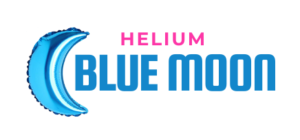Telecommunications Giant AT&T Partners with Helium to Enhance U.S. Wi-Fi Coverage
AT&T has unveiled a strategic alliance with Helium, a decentralized wireless network provider, aimed at broadening Wi-Fi accessibility for its customers. This partnership allows AT&T users throughout the United States to tap into Helium’s network of community-driven Wi-Fi hotspots, which is designed to bolster service coverage and reliability.
Helium’s Community-Powered Network and Incentives
Helium functions as a decentralized physical infrastructure network (DePIN) that relies on individuals and businesses to deploy small wireless devices, referred to as Hotspots. These Hotspots enhance network coverage, and participants are rewarded with Helium’s native token, HNT. Currently, the Helium Network boasts over 93,000 active hotspots, mainly in the U.S., providing a viable alternative to conventional infrastructure setups.
Seamless Connectivity through Passpoint Integration
AT&T users can seamlessly connect to Helium hotspots using Passpoint technology, which offers secure and automatic Wi-Fi authentication. This integration enables users to transition smoothly between conventional cellular services and Helium’s decentralized Wi-Fi, resulting in a more integrated and user-friendly experience. The commercial agreement is established between AT&T and Nova Labs, the organization behind the Helium Network. While AT&T does not provide direct compensation to hotspot operators, these contributors continue to earn HNT based on the data they facilitate and their coverage contributions. Helium’s reward system is designed to ensure participants are compensated in line with their network utility.
Growing Network Adoption and Industry Partnerships
Helium’s network currently supports over 800,000 daily users and has gained traction with additional telecom operators, including Telefónica’s Movistar in Mexico. This expanding interest from the industry underscores the operational advantages of integrating decentralized infrastructure with existing mobile networks. In February 2024, Helium Mobile introduced the Zero Plan, a complimentary phone plan that offers unlimited text, talk, and data within the U.S. This development marked a significant milestone in showcasing the potential of decentralized networks within mainstream telecommunications. With AT&T’s participation, Helium’s infrastructure is poised to significantly enhance mobile connectivity across the nation.
Regulatory Clearance and Technology Shift
In April 2025, the U.S. Securities and Exchange Commission (SEC) completed its investigation into Helium’s token offerings, determining that HNT, MOBILE, and IoT tokens do not qualify as unregistered securities. This ruling alleviates a major regulatory hurdle and promotes the continued expansion of the Helium ecosystem. Initially, Helium deployed its own blockchain but made a significant transition to Solana in 2022, leveraging Solana’s enhanced scalability and performance. Additionally, Helium has successfully secured substantial funding since its inception in 2013, including a noteworthy $111 million token sale led by Andreessen Horowitz and a $200 million Series D funding round. The integration of Helium’s decentralized infrastructure into AT&T’s wireless services marks a pivotal moment in the convergence of wireless technologies. By merging community-driven innovations with traditional telecommunications, AT&T seeks to elevate connectivity and service coverage for its customers while further solidifying Helium’s influence in the evolution of mobile networks through cost-effective, decentralized solutions that complement existing frameworks.

